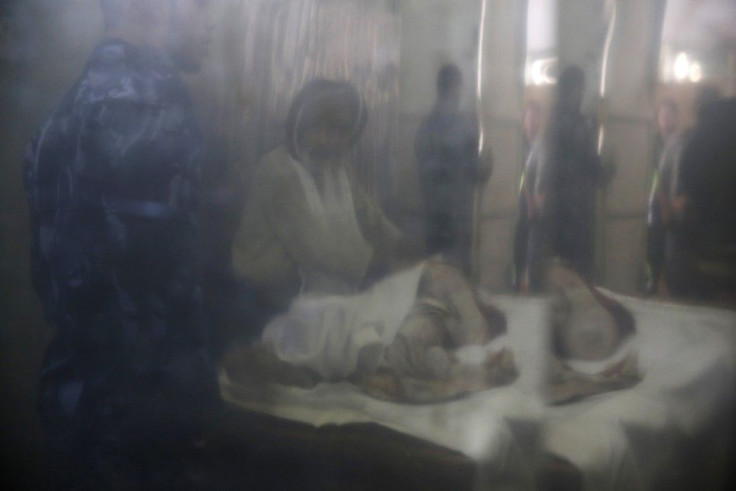Report Claims China & Taiwan Sell Human Meat

A revolting news was reported on Monday by the Web site World News Reporter, claiming that human meat is being sold openly in China and Taiwan.
The report, accompanied by gory images of chopped body parts, identified the city of Tiongkok as where human meat parts are sold, similar to poultry sold by parts such as thigh, leg, breast or wings. It said the costliest meat is that of females, specifically their breasts.
However, many readers who read the article think it is a hoax, and even noticed the very bad grammar of the story.
Alex Delarge said only an idiot would believe in such a news article, while Nica Alday pointed out that the woman in the photo doesn't even look Chinese.
Meanwhile, another Web site, Snopes.com, also debunked an Internet hoax story of dead babies or fetuses being sold for $50 to $70 in Taiwan. To make the story believable, the article was accompanies by a photo of a man eating what looks like a cooked infant.
The Web site said both Scotland Yard and the FBI investigated the photo and it identified the man as Zhu Yu, a Chinese performance artist who actually staged the conceptual shocking image titled Eating People at a Shanghai Arts Festival in 2000.
Since then, the photo has been included in several art exhibits and included in the Beijing Swings documentary of a TV show aired in the UK in 2003 over Channel Four. Here is a clip from that docu.
YouTube/zczfilms
While the two articles are apparently fake, what is real is the trafficking of body organs such as the kidney, which are for transplant procedures and not human consumption.
Want China Times reported on Saturday that 12 Chinese men were sentenced two to nine years jail term by the people's court in Qingshanshu, Nanchang in Jiangzi province in July for selling human organs.
The head of the convicts, Chen Feng, is the chair of a pharmaceutical company in Guangzhou. From October 2011 to February 2012, the firm harvested kidneys from 23 living donors, which earned them $253,500 or 1.5 million yuan.
Chen did it by building relationships with many doctors in organ transplant teams in Chinese hospitals since he transacts with most of them for his pharmaceutical products.





















